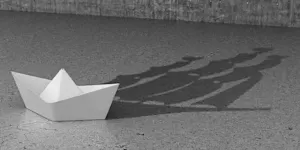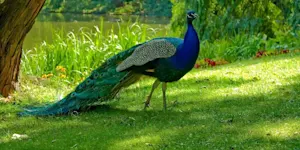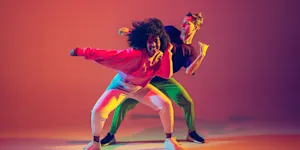What Makes This Word Tick
The verb "roust" packs quite the punch, doesn’t it? It implies stirring someone or something into action with a bit more gusto than a gentle nudge. Its very sound suggests a certain jostling energy, like waking someone from a deep slumber. Quite the word to keep handy when you need to inspire some movement!
If Roust Were a Person…
Roust would be that lively neighbor who insists on an early morning hike, rain or shine. They’re always in motion, slightly mischievous, and never ones to take "no" for an answer. Full of vigor, they’re the embodiment of active encouragement—and perhaps just a little bit of persistence!
How This Word Has Changed Over Time
Historically, "roust" has held onto its essence pretty firmly. Derived from a Middle English form, it was once closely tied to rousing an animal or a person in a more abrupt manner. Over time, its usage has broadened but never really strayed far from its roots of inciting action.
Old Sayings and Proverbs That Use Roust
While "roust" might not headline ancient proverbs, it does echo the spirit of sayings like, "The early bird catches the worm.” It’s all about kickstarting action and seizing the day, even if you have to roust yourself out of bed to do it!
Surprising Facts About Roust
Here's a curious tidbit: "roust" shares a kinship with "rouse," both words thriving in the world of stirring things up. What separates them is subtle—often "roust" suggests a little more urgency, whereas "rouse" can sometimes lean toward the more poetic.
Out and About With This Word
In the bustling world of auctions, you might find "rousters" at work—those energetic individuals who hustle to prepare elements of a sale. It’s a term that finds its home in scenes that require energy and a bit of chaos management.
Pop Culture Moments Where Roust Was Used
"Roust" found its way into the title of Elvis Presley's 1964 film "Roustabout," where he played a carnival worker. In this swinging role, Elvis epitomizes the very essence of movement and lively energy this word suggests.
The Word in Literature
You’d likely stumble upon "roust" in action-packed novels or stories where characters either find themselves metaphorically or literally waking to action. It’s a vibrant word that lends scenes a palpable boost of energy and motion.
Moments in History with Roust
Imagine the early miners in the Gold Rush being rousted out of their tents at dawn, ready to seize the gold by first light! It’s a word that perfectly captures historic scenes of urgency and endeavor.
This Word Around the World
Globally, similar concepts exist in various languages. For instance, in French, "réveiller" captures the same spirit of waking or stirring. Across cultures, this idea of shaking someone to action resonates universally in different tongues.
Where Does It Come From?
"Roust" finds its roots in the Middle English "rousten," closely related to "rouse." Both derive from the Old Norse "rūsa," meaning to shake the tree—imagery quite perfect for the word’s energetic impact.
How People Misuse This Word
Occasionally, folks might use "roust" when they mean something less vigorous, like "wake." Remember, "roust" carries a bit more pizzazz and urgency!
Words It’s Often Confused With
Rouse: Similar in sound and meaning, but typically "rouse" is less emphatic.
Rust: Easy to mix up due to phonetic similarities, but entirely unrelated.
Roast: Frequently muddled with "roust," especially when spoken quickly.
Additional Synonyms and Antonyms
Synonyms for "roust" include stir, rouse, and arouse. Its natural antonyms are calm, lull, and pacify.
Want to Try It Out in a Sentence?
You might say, "I had to roust my brother out of bed to get him to the breakfast table before the pancakes disappeared!" Here, "roust" vividly depicts urging someone into action, capturing its lively spirit.
















